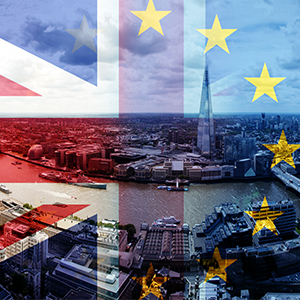Since the Brexit referendum was held, the UK government has focused significant time and energy on establishing a negotiating position for the separation. The policy was outlined in an early February 2017 whitepaper entitled, “The United Kingdom’s Exit from and new partnership with the European Union.” While not delving into significant detail on the referendum’s impact on trade, nor the UK’s negotiating tactics, the policy document outlines the ultimate goals for the separation.
European and global businesses that engage in trade activities between the UK, European Union, and the rest of the world will see significant structural changes to the Customs environment over the coming years as a result of Brexit. As these changes will have sweeping structural and financial impacts in businesses, Tradewin has outlined potential ramifications of upcoming changes in the relationship between the UK and European Union, along with some elements to consider.
Potential ramifications and some elements to consider*:
- Britain is leaving the EU Customs Union
- The UK has a responsibility to create a separate external tariff structure from the EU
- Existing Free Trade Agreements - two large impacts
- New Free Trade Agreements
- Changes to European manufacturing and distribution models
*The full implications can be found in our free whitepaper.
Moving Forward
In order to initiate the separation process, the UK must trigger ‘Article 50,’ a provision of the Lisbon Treaty. This sets out time limitations for the UK to finalise the negotiations, and stipulates that the UK must leave within two years of Article 50 being triggered. To prepare for this and the contingencies listed above, the UK Department of International Trade is in the process of recruiting staff to negotiate the terms of Article 50, as well as work to build an external tariff and engage in planning for future trade agreements. Just as the UK government is ramping up, businesses with significant interests in the UK market should prepare themselves for Brexit. Each company with activity in the UK and the EU should analyse their supply chain and customs process in depth to fully understand the potential ramifications of regulatory changes.
![]()
 |
 |






